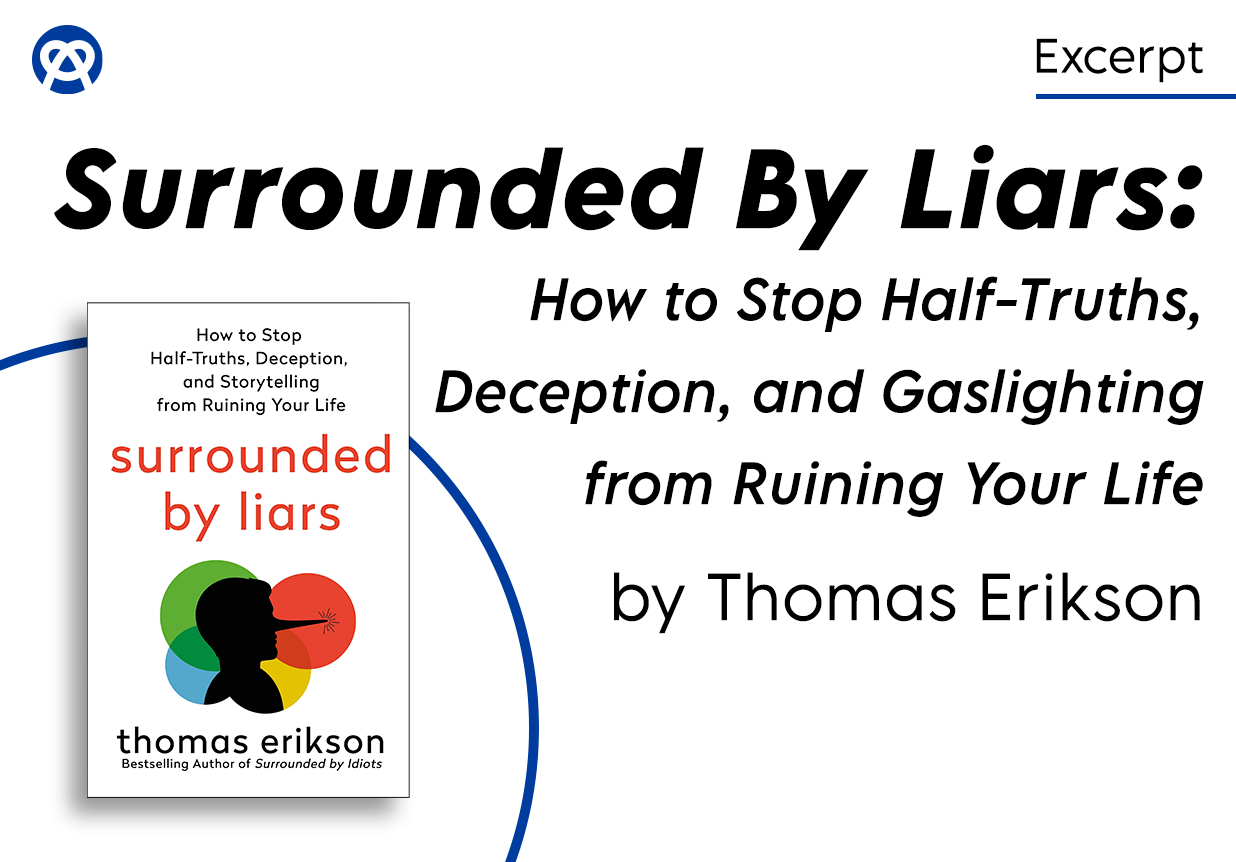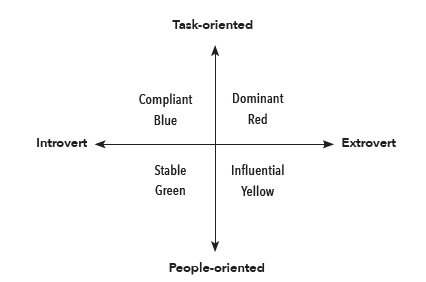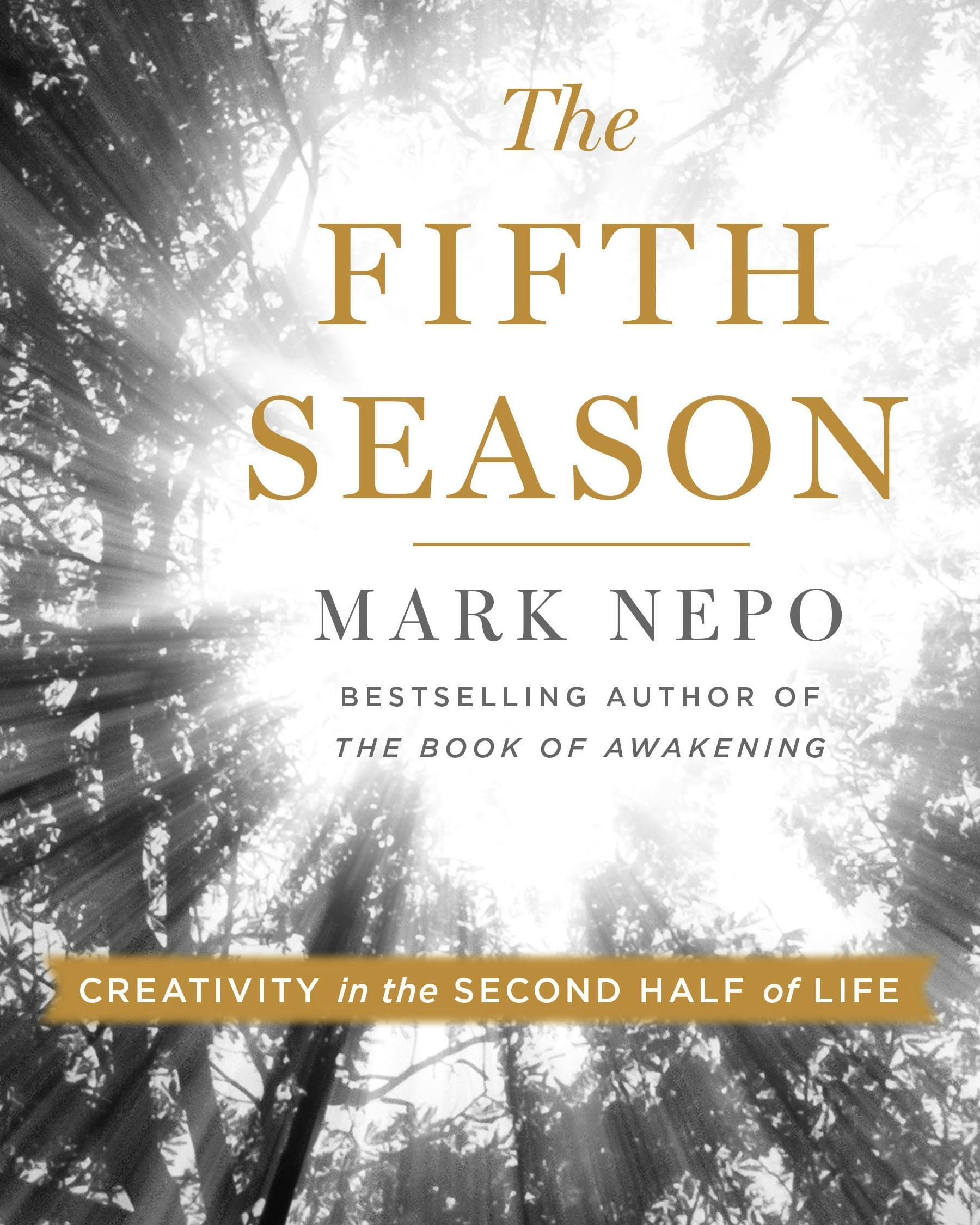
Whether in your personal or social life, professional life, or on the news or media, sorting the lies from the truth can be exhausting and make you feel constantly on edge. In Surrounded By Liars, Thomas Erikson shows you how to identify and deal with the liars in your life. With the help of the simple, four-color behavioral model made famous in Surrounded by Idiots, readers will learn to protect themselves against deception and insincerity. Read an excerpt below.
You may have heard of the method in which human behavior is categorized using four different colors: red for dominance, yellow for inspiration, green for stability, and blue for conscientiousness. These are the basic ideas of the DISC theory, which is used all over the world.

I’m often asked if there are really only four kinds of people. The answer is very simple: of course not. As we can see in the figure above, while Red is always Red, it can still mean lots of different things. An individual who is in the top right corner would be very Red—perhaps exclusively Red. This means, then, that this individual would behave a certain way. We’ll be able to understand what makes them tick almost immediately. On the other hand, somebody who is in the bottom left corner of the Red quadrant would appear different in certain ways. The position you’re at on each axis will jointly determine your behavioral profile. This is, then, only a matter of how to describe the various basic ingredients.
THE IMPACTS OF LYING ON DIFFERENT PERSONALITY TYPES
Let’s go even deeper and look at the specific consequences that lying can have for some different groups of people. We’re all different, and it’s quite possible that you don’t care about your reputation as much as I care about mine. We don’t all react the same way to the same things, and maybe that’s just as well. I’d like to return to the four colors now to discuss the particular risks that some of us may face.
Reds Experience a Loss of Trust and Credibility
What consequences can a Red person suffer from having a lie exposed? Well, as we discussed earlier, trust is a fundamental component of any relationship, whether it be personal or professional. When someone is caught lying, they can lose trust and credibility, and this can be difficult or impossible to rebuild. For Reds, who rely on their authority and influence to achieve their goals, a loss of trust and credibility can be particularly damaging.
Lying can damage relationships, in both the personal and the professional domains. When individuals feel deceived or manipulated, this can cause them to feel betrayed and resentful. For dominant individuals who may already face struggles in their interpersonal relationships because of their pushy and competitive nature, lying can further exacerbate these challenges and make it even more difficult for them to form and maintain meaningful connections with others.
A particular challenge for Reds is that they aren’t relationship-oriented, but rather task-oriented. Losing a few friends on the path to success isn’t the end of the world. At least not for a Red person. They know that it’s lonely at the top, and they’re prepared to live with that. The worst thing that can happen to them is to lose control of a situation. That’ll sting.
Yellows Suffer Both Socially and Psychologically
The social consequences of lying are worse for Yellows because of their extensive social life and their desire to be loved wherever they go. Lies can spread like wildfire, and when the truth is finally revealed, it’s not only the liar who tends to get burned.
Psychological consequences like guilt or stress will often follow and negatively impact their overall well-being. It will make them awful in the moment. However, and this is worth knowing, their ability to recover quickly, brush this discomfort right off, and move on is most impressive. All the while, of course, they work hard to convince themselves that the unpleasantness never actually happened. Never underestimate the Yellow’s capacity for self-deception.
The challenge for a Yellow person is rather that they are quite prone to going astray. They like to make the experience special for everyone, and they want to tell good stories. I can’t tell you how many times I’ve listened to a Yellow person’s embellished stories and thought to myself that I’d love to find out what really happened. But it’s entertaining, in any case. Is it a proper lie, though? Well, that depends on who you ask. If you were to ask a Blue person, anything less than 100 percent true is by definition a lie. The terms of communication are always set by the recipient. That’s just the way it works.
Greens Get Into Conflicts
The fact that Greens lie just as much as any color means that their lives can be very dangerous, particularly if they choose to lie to Red people. They won’t hesitate to subject the Green little liar to harsh censure when they finally find out the truth. Since Greens tend to shy away from conflict, this can cause major problems.
Change and conflict are the most difficult things for Greens to deal with. They’d love to please everyone, but as that’s impossible, they often end up not pleasing anyone. This means that danger looms practically everywhere. They don’t cope with stress as well as the other profiles. They’re sensitive to criticism, loud voices, and being questioned. Being outed as a liar in front of a whole group can do serious harm to a Green, and this is something a Red or a Yellow wouldn’t hesitate to subject them to if they lost their temper.
The consequences of their lies could well end up giving them post-traumatic stress issues.
Blues Can Lose Their Stature as Specialists
For a Blue person who might have lied to cover up a mistake they didn’t want to admit, for instance, the very concept of lying can cause difficulties. However, although I can’t prove it, I think these people are safest for us to trust. They aren’t essentially relationship-oriented, and this probably makes them quite prepared to fib to people they are loosely connected to. Being found out wouldn’t cause any great loss in terms of what others think about them.
On the other hand, if they were to be caught fudging data or being wrong about something because of an incorrect assumption—oh, the horror! It would be wrong to say that Blues don’t care about status. It all depends on the kind of status we mean.
Just look at the world of academia, where things can get quite brutal. Blue researchers in virtually any field fib quite freely, and are happy to stab some backs if it can protect what they hold to be the truth. Some of them do get exposed as cheaters. That’s a real status killer. They end up as pariahs, and they might not even be able to find new jobs.
However, this is even worse: Their phones will stop ringing. They’ll be completely ostracized if they’re exposed as frauds. While it won’t bother them that they won’t be invited to any more cocktail parties, the fact that their skills will no longer be in demand will be devastating to them. It’s a tough loss for a Blue.
Copyright © 2024 by Thomas Erikson

Thomas Erikson is a Swedish behavioral expert, active lecturer, and bestselling author. For more than twenty years he has been traveling all over Europe delivering lectures and seminars to executives and managers at a wide range of companies, including IKEA, Coca Cola, Microsoft, and Volvo.
Surrounded by Idiots has been a Swedish runaway bestseller since it was first published in 2014. It has sold over 3 million copies worldwide and been translated into 42 languages.










